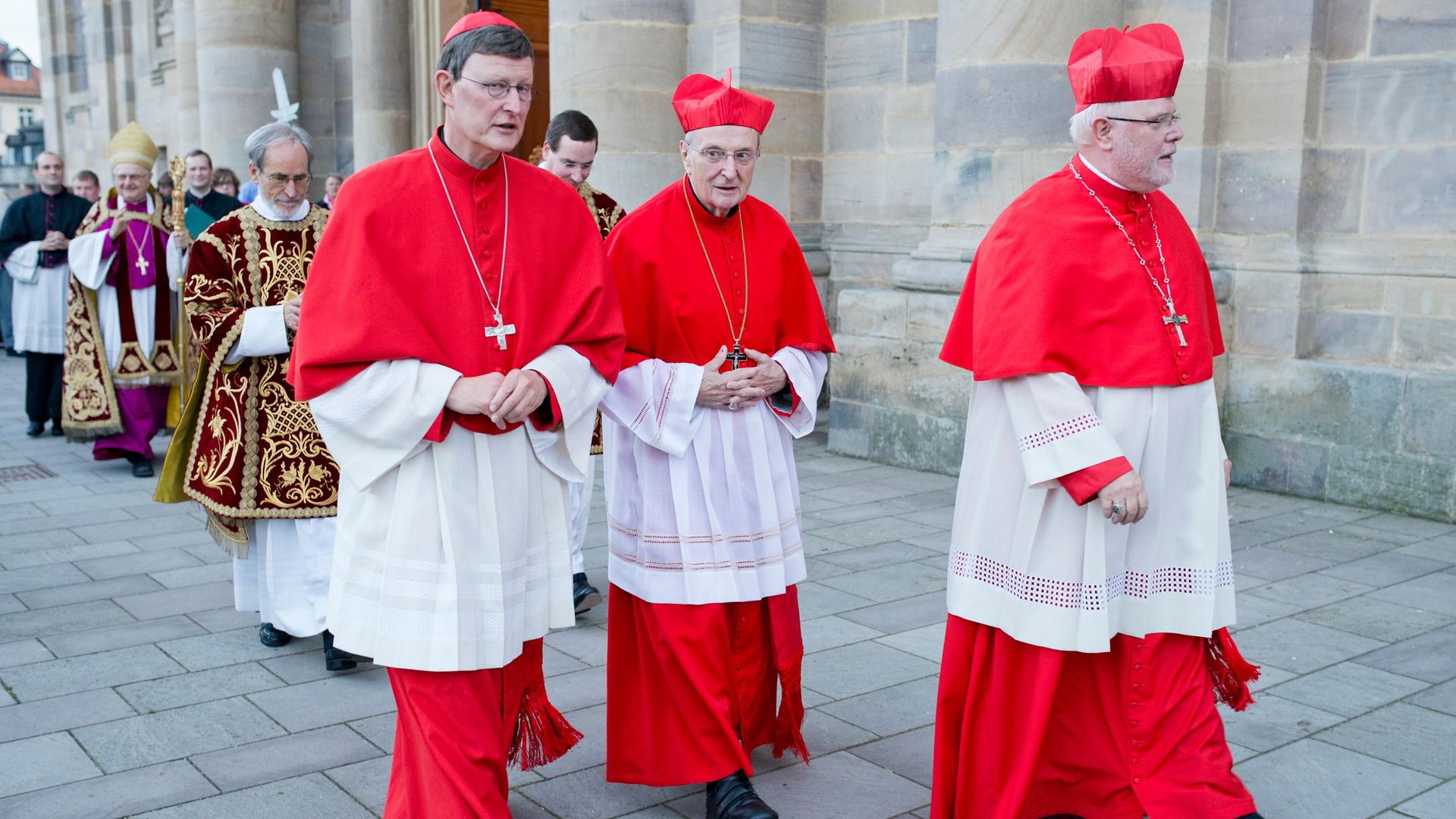
The country’s complex relationship between church and state has further complicated an ongoing scandal
When Cardinal Reinhard Marx, Archbishop of Munich and advisor to Pope Francis, offered his resignation last week, you could almost hear the cymbals clash.
Both Marx’s motive and the public manner of his step were a complete novelty. Usually, when prominent German clergy leave office, it is for health reasons or minor to major transgressions. Margot Käßmann, Protestant Bishop of Hanover, was caught boozy behind the wheel a couple of years ago, jumping a red light. It was Lent, and having told journalists that she had abstained from alcohol during the fasting period, she called it a day.
Limburg’s Bishop Franz-Peter Tebartz-van Elst on the other hand was ‘holy’ unrepentant: During the financial crisis he used 31.5m euros from church funds to renovate his residence, 30m above estimate. There was no golden wallpaper à la No.10 but the Episcopal bathtub alone cost 15,000 euros. Rome called him in (and has kept him since).
Cardinal Marx’s resignation is on a different level entirely. Germany’s most senior Catholic wrote to Pope Francis: “I feel that through remaining silent, neglecting to act and over-focusing on the reputation of the Church I have made myself personally guilty and responsible.”
Marx assumed his share of responsibility for the “catastrophe” of sexual abuse by priests, although he himself – being a rather popular progressive – wasn’t under public pressure.
The pressure is instead on his Cologne colleague Cardinal Rainer Maria Woelki, and Marx’s decision (intentionally) adds to it. But Woelki clings to his mitre like a limpet. He is accused of hushing up sexual abuse and promoting at least one abuser, suppressing an expert report from 2020 and ordering a different one to clear his name.
This week, two Vatican investigators arrived in his diocese. Such an act is called an Apostolic Visitation, and it’s safe to assume this pair won’t just visit Cologne’s impressive cathedral. (It took 632 years to build it… but that’s another story.)
Many countries have seen the horrors of abuse and cover-up committed by churchmen and women. In Germany, because of the many complicated ties between the state and the churches, the impact of current events go much deeper than the headlines. It’s not just Catholics who are furious.
Statistics show that more than half the population still belong to a church (roughly 20 million Protestants and 22 million Catholics) but only around four million people regularly go to mass. In 2020, however, more than half a million people decided to leave their church for good, an even larger number than usual.
In spring this year, the web servers of Cologne’s local district court crashed because thousands requested appointments to declare their decision to leave their church. This may surprise you but this formality is necessary if you don’t want to pay church tax anymore.
Because, yes, in Germany the public revenue office serves as debt collector for Christians and Jews (the amount varies between 7-9 % of income tax), around 12bn euros in 2020. Muslim organisations aren’t part of the system, because they haven’t organised themselves as religious bodies (yet). But even as a foreigner moving to Deutschland your employer or tax office will immediately ask you to name your church affiliations, if any.
Better still: No matter whether you are Muslim, Buddhist, Zoroastrian or atheist, you do pay for Christianity in Germany anyway, for historic reasons. You had Henry VIII, we had… Napoleon. He died 200 years ago, but his legacy remains very much alive: When his administration expropriated German church fortunes in the early 1800s, the agreed compensation was for the state to pay for dignitaries’ sustenance. To this day.
About 500m euros from general tax revenues are given to the churches annually. To stop this, a settlement would have to be reached, but for decades now the national parliament and the federal states are dodging the topic. The irony is that all of this is unthinkable in today’s France, but we owe it to a Frenchman.
Church-state affairs don’t end there. As in the UK, we have church schools largely subsidised by taxes – a rising number actually in eastern parts of Germany, where post-socialism created some demand. But even public schools may have crucifixes on classroom walls, especially in the south. The same goes for public buildings and even courtrooms. National broadcasters must be politically independent – but they have to make room for religious content edited by teams connected to the Christian churches.
I remember listening to a particularly anti-capitalist religious programme at 6.35am on my usual radio station two years ago, when I nearly dropped my toothbrush and firmly decided this was the moment I had to leave my church. I didn’t, in the end.
Because, of course, churches also run non-profit hospitals, hospices, emergency medical services and kindergarten that German society largely relies on. Nearly one million people work for church-related institutions in some way and all this adds to the churches’ influence as significant moral and political players.
In his letter, Cardinal Marx claimed that his church has reached a “toter Punkt” (dead spot). He realises that the many personal and institutional failures of the past and present are life-threatening to the church itself. In Germany, it has more to lose than just its privileges.
And maybe that’s why Pope Francis just decided to reject Marx’ resignation: There’s work to do.
What do you think? Have your say on this and more by emailing letters@theneweuropean.co.uk
Warning: Illegal string offset 'link_id' in /mnt/storage/stage/www/wp-includes/bookmark.php on line 357
Notice: Trying to get property 'link_id' of non-object in /mnt/storage/stage/www/wp-includes/bookmark.php on line 37






